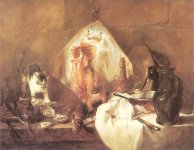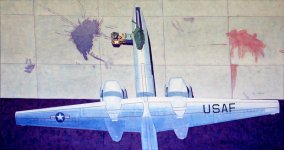Roger Hicks
Veteran
...that does not make you a teacher.
Sorry, Larky, but I disagree as strongly with you as you disagree with me. I'm not talking about changing your teaching to suit your pupils needs and ability: anyone who's half competent would know that that you have to do that without being told.
But some kids don't, won't or can't learn certain subjects. Trying to teach me music, for example, is a complete waste of time. In a music class, you can try to get me to enjoy myself -- it works with folk music -- but I'll be a stumbling block to anyone wanting to learn notation or musical theory. Likewise a dancing class: I would only be there under duress. Or to change examples entirely, my brother is a bloody awful Latinist and not much better at French.
No teacher can please everyone, all the time. Anyone who thinks he can is a fool, and an arrogant fool at that. In the real world, with (say) 30 kids in a class, there has to be a certain degree of triage: those who want to learn, those who can be persuaded to learn, and those you want on your side but out of trouble. Spend too much time on the last group, and you are short changing the first two. They may flourish in someone else's classes: best of luck to them.
Although each side sometimes has difficulty in believing it of the other, both teachers and pupils are human beings, and human beings don't always take to one another or listen to one another. A good teacher tries; but if he thinks he can always succeed, there is no hope for him.
When I was teaching, I tended to be a lot more popular with pupils and their parents than with my fellow teachers. This was because I DID engage their interest and encourage them to think; anathema to a certain kind of teacher who wants to appear as the fons et origo of all knowledge.
One of the best complients I ever had was several years after I had given up teaching. A young man came up to me, and after establishing who I was and who he was, said, "Us thought us didn't learn f*** nothing in your classes, but looking back on it, us learned more there than in the rest of the f***ing school put together." (I was not, I hasten to add, his English teacher.)
I'd suggest that this may, in fact, qualify me as a teacher -- far better than an awareness of current or past fashions in educational theory, or a worthless piece of paper awarded me by ex-teachers (which, incidentally, I was given before I quit -- I am a DES recognized secondary school teacher).
EDIT: My late mother was a teacher; my late mother-in-law was a teacher; one of my oldest friends, a woman so close that I refer to her as my sister, is a teacher. I know or have known many others, including many excellent teachers: the latter both as a pupil, and among my fellow teachers.
But one of the reasons I left was that there are too many self-important twerps who have never left the classroom in their entire lives, merely jumping from one side of the teacher's desk to the other. The worst of them normally lectured other teachers.
FURTHER EDIT: Read what I said, that the 70s were a high point of incompetent teaching and worthless educational theory. From the way I read your letter, you seem to agree that this 40-year-old theory is worthless. This is why I was attacking it and suggesting alternatives. Or do I misread you?
Cheers,
Roger
Last edited:


